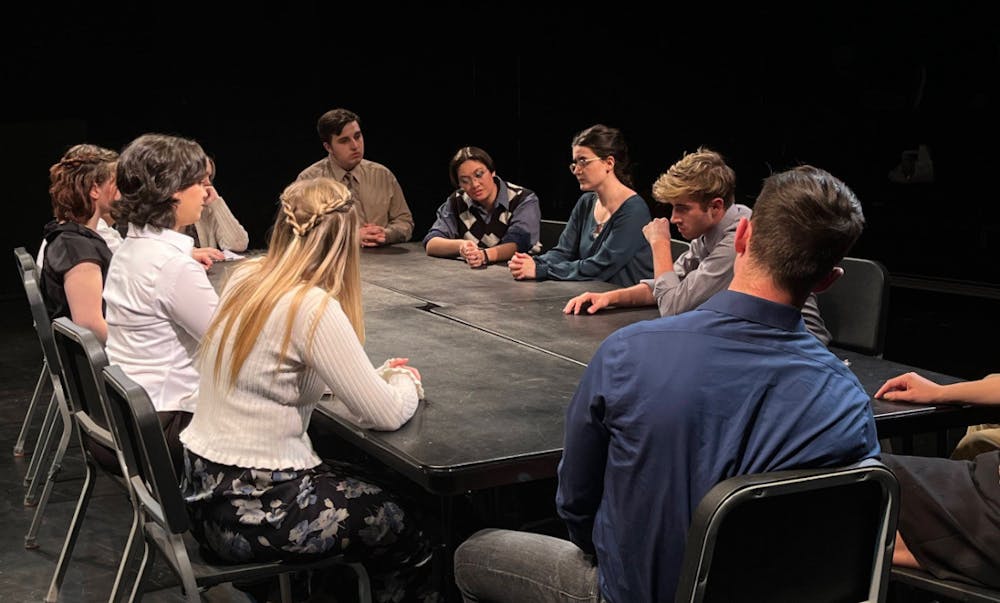By Emily Devi Ramkishun
Correspondent
All College Theatre (ACT) put on the production “Twelve Angry Men” by Reginald Rose on April 26 at 8 p.m. in the Black Box theater.
The play consisted of 12 jurors who have to come to a verdict on whether a teen boy accused of stabbing his father deserves the death penalty. “Twelve Angry Men” takes place in a New York conference room with a window on the right and a clock and door on the left.
“[I] thought it was amazing,” said Katie Manhardt, a junior theater performance major. “[I] loved the way they staged [the production].”
In “Twelve Angry Men,” the jurors are faced with great responsibility. It's an unpleasant room; the jurors are complaining about the door, window and then their time.

(Photo courtesy of Braden Drake)
Eleven jurors believe the suspect was guilty, but Juror 8 says “not guilty” since he believes the teen boy is innocent until proven guilty. Juror 8 brings up the boy's past: he was living in the slumps, his mother passed away when he was just nine years old and his father has been abusing him since he was five years old.
“I really enjoyed the direction that our director took with the show,” said Kit Weeden, a sophomore biology major, who played Juror 10 and later Juror 11. “So many productions of ‘Twelve Angry Men’ are just as it is written, which can get boring. Getting to take it and apply concepts of gender to it added so much depth to our production.” The original play consisted of jurors who were only white men. This play included other genders and ethnicities.
In act two, the discussion about the old-crippled witness arises, moving the plot forward.
“I thought it was great,” said Maddie Kamisky, a junior voice music major. “It was really compelling.”
Act Three then began with six jurors voting non-guilty. If seven or more vote guilty, then the death penalty would be introduced.
“I think the most difficult part was the pace that we had to ensure the show stayed at to guarantee that it didn’t get too slow and stagnant,” said Delaney Bogusz, Juror Four, a junior elementary education and music major. “It was a challenge at times to deliver lines quick enough and bounce [off] each other in a way that still seemed conversational and authentic.”







